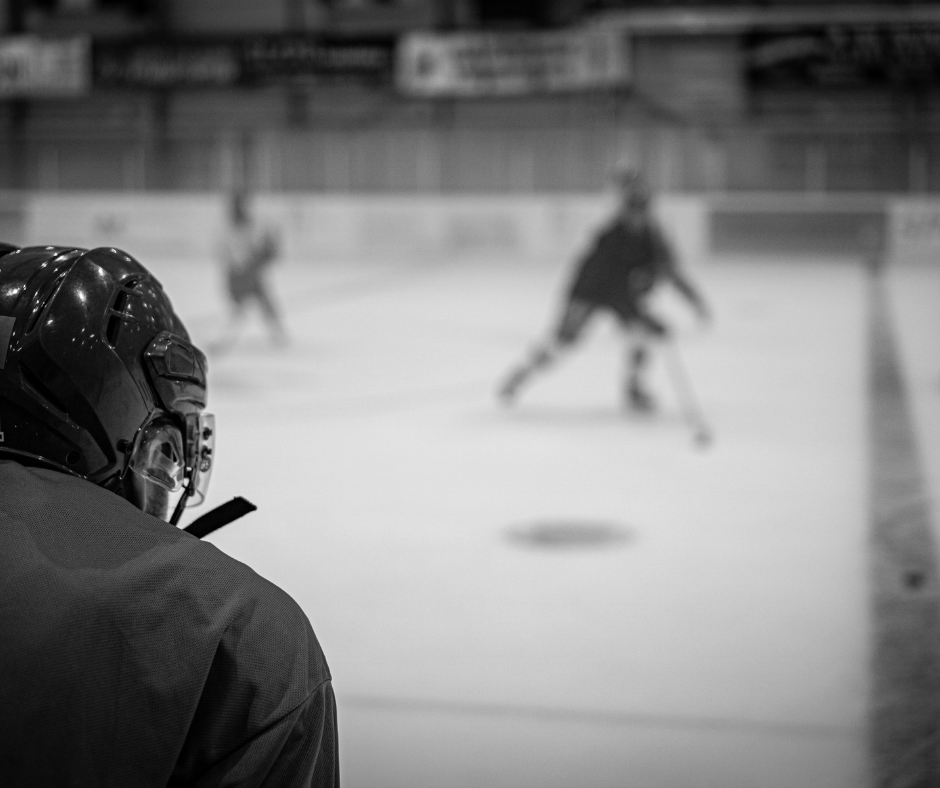
Cold Dry Hands: The Short Bench
By Hal Tearse
Cold Dry Hands: The Short Bench. Hockey is a team game, and youth hockey is for the enjoyment and development of all the players. Teams play three lines regularly at the college and professional ranks and often use the fourth line. In youth hockey, the holy grail of “winning” is too often used to relegate the third line to the bench in many games.
When I coached Bantam A teams, our opponents regularly shortened their bench early in the game. We beat a better team in the regional playoffs a couple of years ago because they only played two of their three lines. We changed our three lines every 30 seconds and wore them out. When we went through the post-game handshake, there were five cold, dry hands. It was the last game of the season for them, and the third line did not skate a shift. In another instance, the third line never played a shift against us in a scrimmage game in October. In high school games, opponents have left the third line sitting for entire games, not to mention the fourth line. In Pee Wee B, our opponents routinely shorted the bench and, in one instance, during the first period. Tournaments bring out the short-bench syndrome.
So what is this all about? Is it about winning? Perhaps or maybe it is about not losing. Perhaps the fear of losing is stronger than the joy of winning. I cannot understand what is so important that a coach needs to sit a third of the team down in the important games. The impact on those players is devastating. Winning cannot heal the damage.
I am often told that the coach told the parents and players at the beginning of the season that this might occur and that everybody agreed to it. This is self-serving for the coach because when would a parent or player speak up against a policy like this? After all, every parent and player thinks it will be the other kids who sit out. It is not until it occurs to them that the reality sinks in. By the time it happens, it is too late to object. The parents of the players who are getting the extra ice time are suddenly in favor of the short bench and will not speak up.
There are two schools of thought about this. The first is that winning is the salve that heals all wounds. A player relegated to the bench during the championship run should be happy to be along for the ride. The second is that we play all season together as a team, and as a team, we will finish by playing together.
At the higher levels of hockey, where it is a business and winning actually affects players’ and coaches’ careers, player utilization is accepted by the participants. Players are delegated certain roles, and they need to fulfill those expectations. In youth hockey, winning feels good, but there are few benefits other than adult ego gratification.
I believe that in youth hockey, there is no place for the short bench. A good coach can manage the players so that all skaters participate in the game. A good coach will spend extra time with the weaker players throughout the season to improve their skills. A coach who starts the season by talking about skill development, teaching, self-esteem, and having fun would not break his word by shortening the bench. The short bench is the easy way out for a coach who has not prepared his team properly.
Does this mean a youth coach should run the line 1,2,3? Well, for the most part, yes. A skilled coach can find a way to equal the ice time out. Will some players get more ice time than others? Yes. In fact, some players do not want to be put into the game in pressure situations. Are there specific reasons to reduce ice time for individual players? Yes, there are (discipline or perhaps illness), but to relegate five skaters and a goalie to the bench for extended periods of time in order to win is not a valid reason. In effect, the message to those benched players is that they are being penalized for lack of talent and not really part of the team.
The game is for the kids, all of the kids. Research nationwide tells us that players would rather play on a team that wins 50 percent of their games than sit on the bench of a championship team with little or no playing time. The bottom line is that all of the kids want to play. We lose 10,000 players nationwide as they move from pee wees to Bantams each year. Many cite the reason they quit because they are not having fun.
My Daughter Quit Sports And This Is What Youth Sports Parents Should Know
I can cite numerous conversations with pee wee and bantam parents over the past several years who told me their boys had played for 5 or 6 years and were about to quit because there was so much pressure to win, and it was not fun. I received numerous emails this past season from parents upset that their child’s coach was routinely running a short bench. One instance was from the parents of a squirt C.
This issue needs to be resolved at the beginning of each season. The parents and coaches all need to understand the policy. With a no-short bench policy, there are no problems. If your team is going to have a short bench policy, perhaps it is better not to have three lines but rather roster only 14 players. That would solve the problem. This issue alone ruins the season for hundreds of kids and parents each year. Even in victory, it is hollow for the players who sat and watched their teammates play. I know several instances this past year where the teams had a problem with the policy in mid-season, and the teams fell apart for the rest of the year.
Parents of youth players should not put up with short-bench policies. You need to get a commitment from your coaches at the beginning of the year that they will not shorten the bench. Be proactive about this issue at the beginning of the season because once the train leaves the station, it is too late to get off.
Hal Tearse is a long-time coach, mentor, author, and leader in the sport of hockey, with additional experience in lacrosse and soccer coaching. A tireless advocate for age-appropriate development of youth in sport. Coach in Chief Minnesota Hockey halt@minnesotahockey.org












